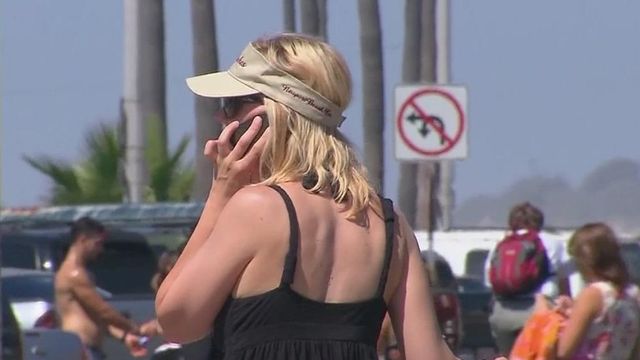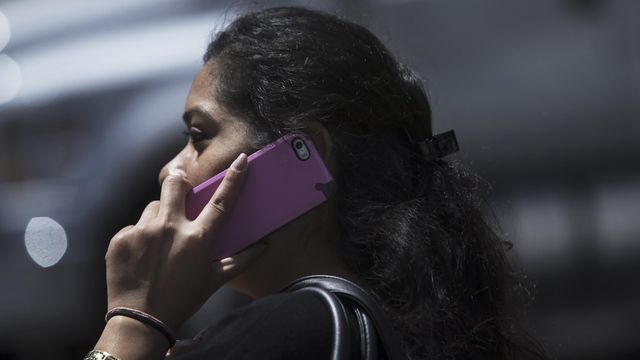Justices adopt digital-age privacy rules to track cellphones
The Supreme Court ruled Friday that police generally need a search warrant if they want to track criminal suspects' movements by collecting information about where they've used their cellphones, bolstering privacy interests in the digital age.
Posted — UpdatedThe justices' 5-4 decision marks a big change in how police may obtain cellphone tower records, an important tool in criminal investigations. And privacy advocates say the decision is likely to have impacts on other technology that closely tracks the movements of mobile device users.
These warrants blocked the technology giant from revealing the searches not just to potential suspects, but to any users swept up in the search.
National privacy advocates and local defense attorneys said they hadn't seen that practice elsewhere. But they also pointed out that unlike the case the Supreme Court decided Friday, Raleigh police had obtained warrants for the information, meeting the highest bar of court review.
Raleigh law enforcement noted, however, that while they did obtain warrants, they disagreed with Google that a search warrant was necessary to obtain the data they requested. ACLU attorney Nathan Freed Wessler, who argued the Supreme Court case in November, said Friday's ruling may pose a daunting challenge to that position.
"The court wasn't directly addressing other kinds of location information, but the logic of the opinion should absolutely apply to those kinds of GPS records held by Google and other tech companies," Wessler told WRAL News Friday. "I think the court also vindicated Google's position that a warrant is required."
Privacy concerns crossed ideological lines
Chief Justice John Roberts, joined by the court's four liberals, said cellphone location information "is detailed, encyclopedic and effortlessly compiled." Roberts wrote that "an individual maintains a legitimate expectation of privacy in the record of his physical movements" as they are captured by cellphone towers.
Roberts said the court's decision is limited to cellphone tracking information and does not affect other business records, including those held by banks.
He also wrote that police still can respond to an emergency and obtain records without a warrant.
Justices Anthony Kennedy, Samuel Alito, Clarence Thomas and Neil Gorsuch each wrote dissenting opinions. Kennedy wrote that the court's "new and uncharted course will inhibit law enforcement" and "keep defendants and judges guessing for years to come."
Roberts does not often line up with his liberal colleagues against a unified front of conservative justices, but digital-age privacy cases can cross ideological lines, as when the court unanimously said in 2014 that a warrant is needed before police can search the cellphone of someone they've just arrested.
The court ruled Friday in the case of Timothy Carpenter, who was sentenced to 116 years in prison for his role in a string of robberies of Radio Shack and T-Mobile stores in Michigan and Ohio. Cell tower records that investigators got without a warrant bolstered the case against Carpenter.
Investigators obtained the cell tower records with a court order that requires a lower standard than the "probable cause" needed to obtain a warrant. "Probable cause" requires strong evidence that a person has committed a crime.
The judge at Carpenter's trial refused to suppress the records, finding no warrant was needed, and a federal appeals court agreed. The Trump administration said the lower court decisions should be upheld.
The American Civil Liberties Union, representing Carpenter, said a warrant would provide protection against unjustified government snooping.
"This is a groundbreaking victory for Americans' privacy rights in the digital age," Wessler said. "The Supreme Court has given privacy law an update that it has badly needed for many years, finally bringing it in line with the realities of modern life."
Local agencies still reviewing court decision
By Friday afternoon, it was unclear to what extent the ruling would impact Triangle law enforcement seeking similar cell tower records.
AnnMarie Breen, a spokesperson with the Durham County Sheriff's Office, said the department is reviewing the court's decision, as well as its own policies and procedures.
Wake County Sheriff Donnie Harrison said his office is also still reviewing the court's decision. Although his investigators may not always seek a search warrant, the court orders for the data they obtain must reach a higher standard of proof.
"For the past several years we have obtained this type information only after we have first obtained a court order based on probable cause," Wake County Sheriff Donnie Harrison said in a statement. "We at, the Wake County Sheriff’s remain committed to respecting the privacy rights of all citizens."
Raleigh police spokesperson Laura Hourigan said in an email that the department "always complies with the law as it applies to our investigative techniques," but did not respond to a follow-up question about whether the department's practices will change.
North Carolina Attorney General Josh Stein's office is still reviewing the court's decision, according to spokesperson Laura Brewer.
Ruling follows 'seismic shifts' in technology
The Trump administration's argument in the Carpenter case relied in part on a 1979 Supreme Court decision that treated phone records differently than the conversation in a phone call, for which a warrant generally is required.
The earlier case involved a single home telephone and the court said then that people had no expectation of privacy in the records of calls made and kept by the phone company.
"The government's position fails to contend with the seismic shifts in digital technology that made possible the tracking of not only Carpenter's location but also everyone else's, not for a short period but for years and years," Roberts wrote.
The court decided the 1979 case before the digital age, and even the law on which prosecutors relied to obtain an order for Carpenter's records dates from 1986, when few people had cellphones.
The Supreme Court in recent years has acknowledged technology's effects on privacy. In 2014, Roberts also wrote the opinion that police must generally get a warrant to search the cellphones of people they arrest. Other items people carry with them may be looked at without a warrant, after an arrest.
Roberts said then that a cellphone is almost "a feature of human anatomy." On Friday, he returned to the metaphor to note that a phone "faithfully follows its owner beyond public thoroughfares and into private residences, doctor's offices, political headquarters, and other potentially revealing locales."
As a result, he said, "when the government tracks the location of a cell phone it achieves near perfect surveillance, as if it had attached an ankle monitor to the phone's user."
Related Topics
• Credits
Copyright 2024 by WRAL.com and the Associated Press. All rights reserved. This material may not be published, broadcast, rewritten or redistributed.






